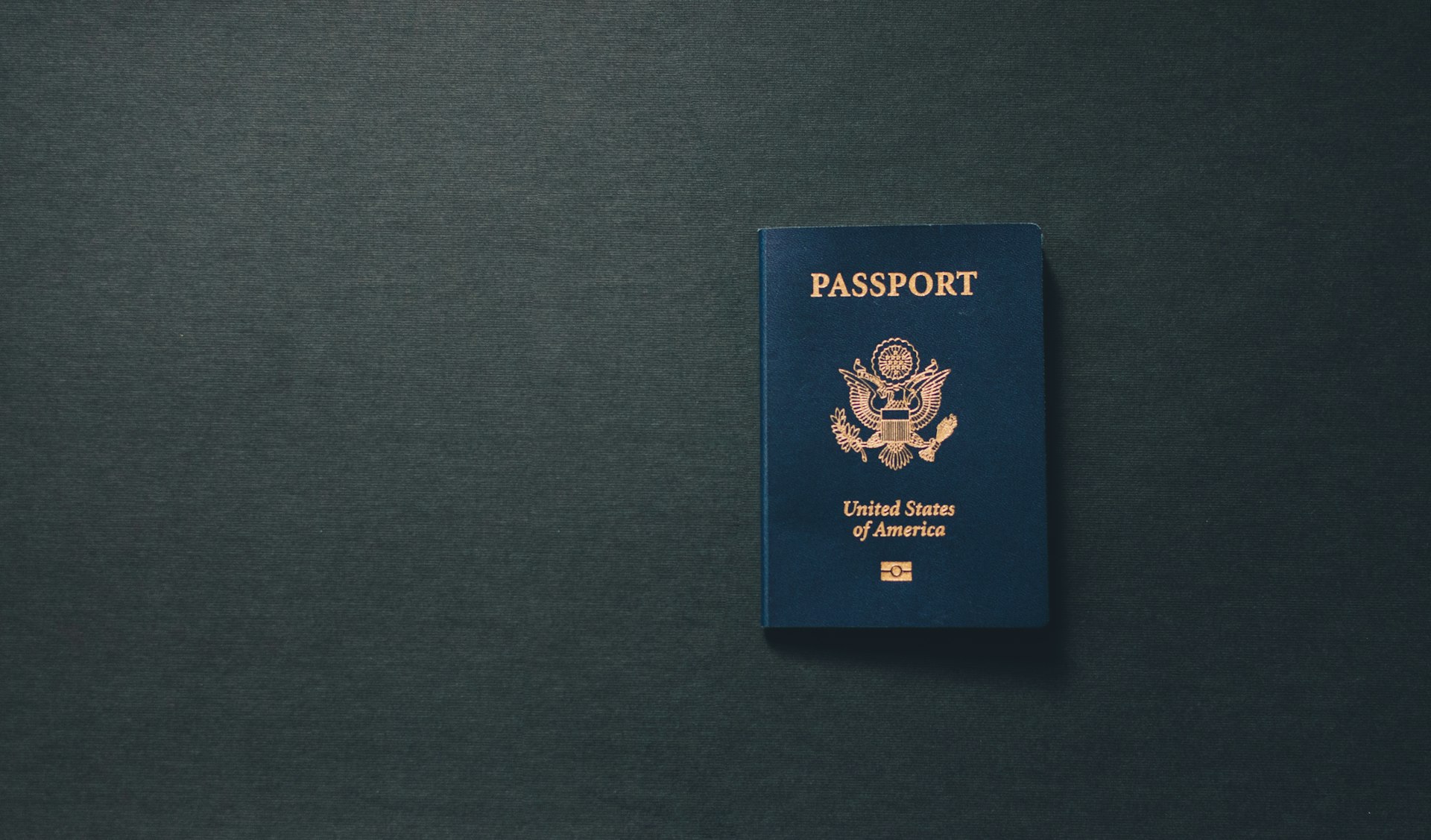Navigating the Future: Digital Health Passports and the Evolution of Global Travel


Photo by Kelly Sikkema on Unsplash
Introduction: The Digital Transformation of Travel Health Verification
The global travel industry is undergoing a significant transformation as the need for secure, efficient, and verifiable health credentials becomes central to safe mobility. Digital health passports-secure, app-based systems that store and share vaccination and testing data-are emerging as pivotal tools for both travelers and authorities. These innovations aim to reduce fraud, streamline border processes, and empower travelers with greater control over their health information. As global mobility resumes post-pandemic, understanding the practicalities, challenges, and future of digital health passports is essential for travelers, businesses, and policymakers alike. [1]
The Promise and Purpose of Digital Health Passports
Digital health passports are designed to address persistent issues in travel health documentation. Traditional paper-based certificates are vulnerable to loss, theft, and forgery, as evidenced by reports of fake COVID-19 test results during the pandemic. Digital solutions offer a more secure, standardized, and convenient way to verify vaccination status and test results, providing several advantages:
- Security and Authenticity: Digital systems minimize the risk of document fraud and loss by using encryption and standardized verification protocols.
- Convenience: Health information can be easily stored, updated, and presented on mobile devices, supporting paperless, contactless travel experiences.
- Real-Time Updates: Travelers receive instant updates on changing entry requirements, testing protocols, and vaccination guidelines, reducing confusion and non-compliance.
These benefits are increasingly essential as countries require proof of COVID-19 vaccination or negative tests for entry, and as border controls remain dynamic in response to evolving health risks. [1]
Current Technologies and Leading Solutions
The digital health passport landscape is rapidly evolving, with multiple organizations and consortia developing competing and complementary platforms:
- IATA Travel Pass: Developed by the International Air Transport Association, this platform enables travelers to manage and share their health credentials with airlines and authorities. Major carriers like Etihad, Emirates, and Qatar Airways have trialed its use. [2]
- CommonPass: Supported by the Commons Project, CommonPass is used by airlines such as Virgin Atlantic, United, and Lufthansa. It standardizes the presentation of test and vaccination data for border checks. [2]
- EU Digital COVID Certificate: The European Union’s certificate system, now adopted by 51 countries, sets a regional benchmark for interoperability and acceptance, and is endorsed by the World Health Organization (WHO). [5]
- WHO Global Digital Health Certification Network (GDHCN): Launched in Europe in 2023, this initiative aims to create a unified global solution for verifying vaccination and test certificates across borders. [5]
- Other Mobile Solutions: Apps such as VeriFLY and ICC AOKpass are also being trialed with various airlines and airports. [1]
Travelers should regularly check with their airline or travel management company (TMC) for current requirements and recommended apps. These are typically listed on official airline websites or provided during the booking process. [2]
Accessing and Using Digital Health Passports: Step-by-Step Guidance
While global standards are still evolving, travelers can take concrete steps to prepare for the widespread adoption of digital health passports:
- Before booking international travel, review the entry requirements for your destination using official government pages or resources like the U.S. Department of State’s travel advisories. For Americans, visit the official State Department website and search for country-specific health entry requirements. [5]
- Consult your airline’s website or contact their customer service to verify which digital health apps are accepted for your route. Many major carriers provide detailed guidance on compatible solutions.
- Download the recommended digital health passport app (such as IATA Travel Pass or CommonPass) from your device’s official app store. Follow in-app instructions to upload your verified vaccination and test records. Most apps require documentation issued by accredited health providers or testing centers.
- Check for updates on travel requirements before departure, as policies may change rapidly. Digital apps often provide notifications about destination-specific changes.
- At the airport and upon arrival, present your digital health pass when requested. Ensure your device is charged and your app is updated for seamless processing.
If you are unable to access a digital health passport or if your destination does not accept digital credentials, carry physical copies of your test and vaccination records. Always confirm with official sources whether paper or digital proof is required.
Challenges, Limitations, and Considerations
Despite their promise, digital health passports face several hurdles:
- Lack of Universal Standards: There is currently no single global standard for digital health verification. Adoption varies by country and airline, and interoperability remains a key challenge. [4]
- Privacy and Data Security: Travelers are rightly concerned about how their sensitive health data is stored, shared, and protected. Reputable apps use encryption and limit data sharing, but it’s important to review each app’s privacy policy before use. [1]
- Regulatory Approval: Full deployment depends on coordination between governments, airlines, and technology providers. Regulatory acceptance may take time, particularly in regions with differing privacy laws and healthcare systems. [4]
- Accessibility: Not all travelers may have access to smartphones or digital literacy skills. Alternative paper-based solutions should remain available for those unable to use digital passports. [3]
Industry watchers recommend monitoring updates from the World Health Organization, International Air Transport Association, and your country’s health or travel authorities for the latest changes. [5]
Emerging Trends and Future Outlook
The future of digital health passports will be shaped by several key trends:
- Standardization and Global Cooperation: The WHO’s endorsement of the EU digital certification system and the launch of the GDHCN signal a move toward harmonized, cross-border solutions. This could facilitate smoother travel and reduce confusion. [5]
- Integration with Broader Health and Travel Services: Future digital health passes may incorporate additional features, such as links to health insurance, emergency contacts, and travel advisories. [3]
- Expansion Beyond COVID-19: While initially developed in response to the pandemic, these platforms could be adapted for other travel-related health certifications, such as yellow fever or polio vaccinations. [4]
- Enhanced Traveler Control: As digital literacy increases, travelers may have more autonomy to manage, update, and share their health data as needed, improving transparency and trust.
Travelers, industry professionals, and policymakers should anticipate ongoing updates and seek guidance from official sources to stay compliant and benefit from technological advancements.
Practical Alternatives and What to Do If Digital Health Passports Are Not Available
In regions or situations where digital health passports are not yet implemented or accepted:
- Carry certified paper copies of your vaccination and testing records, obtained from accredited healthcare providers.
- Consult your country’s embassy or consulate for destination-specific requirements and emergency assistance. For Americans abroad, the U.S. State Department can be reached at +1 202-501-4444. [5]
- Monitor official government and airline websites for the latest updates on travel health documentation requirements.
- When in doubt, contact your travel agent, airline, or local health department for guidance on how to comply with current regulations.
Key Takeaways and Next Steps for Travelers
Digital health passports are poised to become an integral part of global travel, delivering increased security, convenience, and compliance with evolving health regulations. However, because standards and requirements are still evolving, travelers should:

Photo by Mary West on Unsplash
- Stay informed by consulting official airline, government, and health authority websites.
- Prepare both digital and paper documentation for health verification when traveling internationally.
- Monitor for new developments in digital health certification, especially announcements from the World Health Organization, International Air Transport Association, and regional authorities.
- Consider privacy and data protection by reviewing the terms and settings of any health app used.
With careful preparation and ongoing attention to changing requirements, travelers can navigate the new landscape of digital health passports and enjoy safer, more efficient global journeys.
References
- [1] SAP Concur (2022). What Travelers Need to Know About Digital Health Passports.
- [2] FCM Travel (2023). Vaccines: Digital Health Passports and Buyer Considerations.
- [3] BCD Travel (2023). Digital Health Passes.
- [4] Future Travel Experience (2021). Digital Health Passports: Standardised, Interoperable and Coordinated Approach Needed for Industry-Wide Rollout.
- [5] Vax Before Travel (2025). Travel Vaccine Certificates, Passports, Visa.






